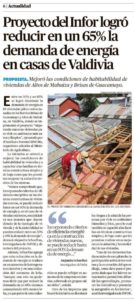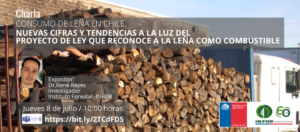The agreement signed by both institutions will allow further progress in closing the technical information gap that exits in terms of energy efficiency, and in its availability to the various stakeholders.
Instituto Forestal (INFOR) —institution attached to the Ministry of Agriculture— and Universidad de Chile will establish a working partnership to address issues concerning climate management from the planning of sectorial strategies associated with energy poverty.
The agreement is signed in the main campus of the university with the presence of Ennio Vivaldi, dean of the institution, and Alejandra Schueftan, manager of INFOR Los Ríos.
On this matter, Vivaldi emphasized that this collaborative agreement is the illustration of how the major problems of today’s society cannot be solved from a particular discipline. “In this regard, energy poverty corresponds to an issue that requires a transdisciplinary approach to develop a comprehensive solution. Additionally, it is essential to face the reality with facts and not assumptions. If we do not start by being familiar with these definitions, we cannot empirically understand what is going on in the country so as to give a diagnosis and solutions in accordance with the needs of the entire society”, he claimed.
Likewise, Alejandra Schueftan declared that this collaborative agreement “will allow to make further progress in order to close the technical information gap that exits in terms of energy efficiency, and to know how to make it available to the various stakeholders, especially to the users.”
In this regard, Schueftan emphasized the work conducted by INFOR’s research line in forestry biomass and energy, by means of the Observatorio de los Combustibles Derivados de la Madera (OCDM). There, the pollution problem affecting the cities of central-southern Chile due to the excessive use of firewood has been addressed.
This work, underlines Schueftan, has allowed to generate relevant information about the quality of fuels, the efficiency of the heating systems, and the energy demand of houses. “This information becomes a tool for the design and implementation of relevant public policies, since it has considered the territorial relevance, and is based on climatic, social, cultural, and economic specifications of the territories”, concluded the manager of INFOR Los Ríos.
During the same activity, the Red de Pobreza Energética (RedPE) submitted a transdisciplinary document prepared by more than 20 professionals from different institutions, universities, and government organisms (including INFOR).
Among the main results, the study showed that energy poverty in Chile is represented by poor housing efficiency, low thermal comfort, excessive energy expense, and power outages. Thus, RedPE proposes territorial and three-dimensional indicators to elaborate public policies that move towards a more complex analysis of this problem.
The research promoted by RedPE shows that at present more than 66% of the Chilean households have energy efficiency problems, and 21% of people report being cold inside their houses during winter. Due to these difficulties, many families cannot afford basic needs such as heating, ventilation, hot water for sanitary use, cooking, food refrigeration, among other activities associated with thermal comfort.







